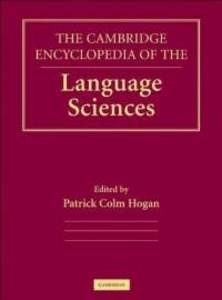Evidentiality
Aikhenvald, Alexandra (2011) Evidentiality. In: Hogan, Patrick Colm, (ed.) The Cambridge Encyclopedia of the Language Sciences. Cambridge University Press, USA, pp. 294-295.
![[img]](https://researchonline.jcu.edu.au/15763/8.hassmallThumbnailVersion/15763_Aikhenvald_2011_Book_Cover.jpg)
|
Image (JPEG) (Book Cover)
- Cover Image
Download (6kB) |
|
|
PDF (Published Version)
- Published Version
Restricted to Repository staff only |
Abstract
[Extract] This is a grammatical category that has source of information as its primary meaning - whether the narrator actually saw what is being described, made inferences about it based on some evidence, or was told about it, and so on. Tariana, an Arawak language from Brazil, has five evidentials marked on the verb. If I saw Jose play football, I will say "Jose is playing-naka," using the visual evidential.If I heard the noise of the play (but didn't see it), I will say "Jose is playing-mahka," using the nonvisual. If all I see is that Jose's football boots are gone and so is the ball, I will say "Jose is playing-nihka," using the inferential. If it is Sunday and Jose is not home, the thing to say is "Jose is playing-sika" since my statement is based on the assumption and general knowledge that Jose usually plays football on Sundays. And if the information was reported to me by someone else. I will say "Jose is playing-pidaka," using the reported marker. Omitting an evidential results in an ungrammatical and highly unnatural sentence.
| Item ID: | 15763 |
|---|---|
| Item Type: | Book Chapter (Reference) |
| ISBN: | 978-0-521-86689-7 |
| Date Deposited: | 09 Jun 2011 06:30 |
| FoR Codes: | 20 LANGUAGE, COMMUNICATION AND CULTURE > 2004 Linguistics > 200407 Lexicography @ 100% |
| SEO Codes: | 97 EXPANDING KNOWLEDGE > 970120 Expanding Knowledge in Language, Communication and Culture @ 100% |
| Downloads: |
Total: 822 Last 12 Months: 8 |
| More Statistics |



